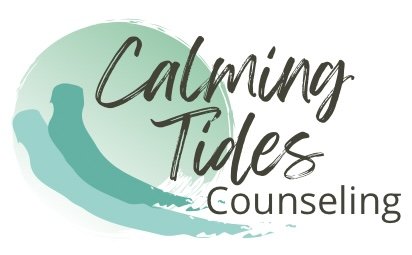Healing from Birthing Trauma: A Journey of Resilience and Hope
Birthing trauma leaves you feeling defeated and leaves behind more than just physical scars. Giving birth can imprint emotional and mental scars, influencing the mothers connection with the newborn and causing profound changes. The pregnancy journey, from beginning to end, is not only about the visible aspects but also the emotional wellbeing that deserves acknowledgment.
Birthing Trauma
The pregnancy journey and birthing experience can be empowering, beautiful, and transformative, a season of growth. It can also be painful, overwhelming and traumatic, a season of adversity . Each experience is unique and comes with its own set of challenges, triumphs, and the potential for profound self-discovery.
Signs & Symptoms of Birth Trauma
Signs of birth trauma vary per person and can be experienced for fluctuating periods of time. The signs and symptoms are closely related to post traumatic stress disorder, however, you don’t have to meet the criteria of PTSD in order to have experienced a traumatic pregnancy or birthing process.
Below are a few common side effects of birthing trauma:
Intrusive thoughts, memories, or flashbacks.
Nightmares and/or sleep impairment
Avoidance or feeling numb
Hyperarousal, irritability, feeling on edge, or difficulty focusing
Emotional Toll on Mothers
Experienced abuse, especially sexual.
Mental health concerns
Prior birthing or pregnancy traumas or difficulties.
Post traumatic stress disorder (PTSD)
PTSD is a mental health issue that a person can experience following a traumatic birth and pregnancy. The symptoms must be experienced up to 1 month or longer following the trauma. You might notice that the distress, memories and negative thoughts, are lingering and feel relentless.
Postpartum Depression
Postpartum affects the mood after giving brith causing sadness, anxiety, and exhaustion that can interfere with a mothers daily functioning. This is also sometimes known as the ‘Baby Blues.’ You might notice struggling to get out of bed, feeling down or sad when with your baby, and crying frequently.
Anxiety
After a traumatic birth, there can be an increase in anxiety that can look like intrusive thoughts, self-doubt, hypervigilane and feeling on-edge. You might find yourself struggling to focus and catching yourself being lost in thought.
Effects on Partners and Family Dynamics
The effects a difficult birthing experience has on the mother often causes a ripple effect. As the mother goes through difficulties, the partner is often witnessing the struggle. A partner can experience their own trauma, or vicarious trauma, after observing the delivery, often feeling helpless. They may go through their own versions of anxiety, depression, or symptoms of PTSD. This can strain the relationship furthering the ripple effect out to any children, grandparents, and other loved ones of the family. They might feel overwhelmed and unsure how to manage their emotions towards the situation or how to hold space for the parents.
If the mother is inaccessible and struggling with the healing process, the family dynamic can be altered. Roles within the relationship change and more responsibilities may fall onto the partner and other members of the family. This relies on mutual understanding and open communication to navigate the necessary adjustments. It is important to take the whole family unit into consideration to ensure the family is able to heal. The healing process often times strengthens the family bond and builds resilience.
EMDR Therapy: A Ray of Hope
Eye Movement Desensitization & Reprocessing (EMDR) offers a path to healing and hope after experiencing a traumatic birth. EMDR supports the brain's natural healing process, gradually reducing symptoms and fostering emotional resilience. Through this journey, mothers and others impacted by the trauma, can reclaim a sense of inner peace, empowerment, and reconnect with the baby and their loved ones.
Seeking Support and Building Resilience
Seeking support and building resilience are essential steps towards healing from traumatic birth experiences. Reach out to trusted professionals, connect with support groups, or lean on loved ones for guidance and understanding. If you want to learn more about how EMDR therapy can help you or you’re ready to take the next step in the healing process, reach out for a free consultation call.
We can navigate through the challenges, cultivate strength, and emerge with renewed hope and resilience. You're not alone! Let's take the first step towards healing today.
Perinatal & Postpartum Resources
Prevention and Treatment of Traumatic Childbirth (PATTCh): resources
Preeclampsia Foundation: birth trauma resources
National Maternal Mental Health Hotline: call or text 1-833-943-5746 (1-833-9-HELP4MOMS)
Citations
Delfish, M. D. (2023, May 24). Maternal Mental Health: A Brief Look at the Impact of Birth Trauma. American Psychiatric Association. Retrieved January 24, 2024, from https://www.psychiatry.org/news-room/apa-blogs/maternal-mental-health-and-birth-trauma
The toll of birth trauma on your health. (n.d.). March of Dimes. Retrieved January 26, 2024, from https://www.marchofdimes.org/find-support/topics/postpartum/toll-birth-trauma-your-health
Delicate A, Ayers S, McMullen S. Health-care practitioners’ assessment and observations of birth trauma in mothers and partners. Journal of Reproductive and Infant Psychology. 2020;40(1):34-46. doi:10.1080/02646838.2020.1788210
Taghizadeh Z., Irajpour A., Arbabi M. (2013). Mothers’ response to psychological birth trauma: A qualitative study. Iran. Red Crescent Med. J.15:e10572. 10.5812/ircmj.10572
Simpson, M., & Catling, C. (2016). Understanding psychological traumatic birth experiences: A literature review. Women and Birth, 29(3), 203-207.
The emotional impact of birth trauma | Pregnancy Birth and Baby. (n.d.). Pregnancy, Birth and Baby. Retrieved January 26, 2024, from https://www.pregnancybirthbaby.org.au/birth-trauma-emotional

